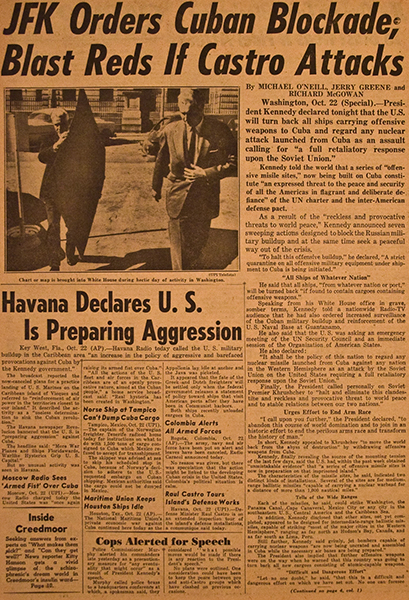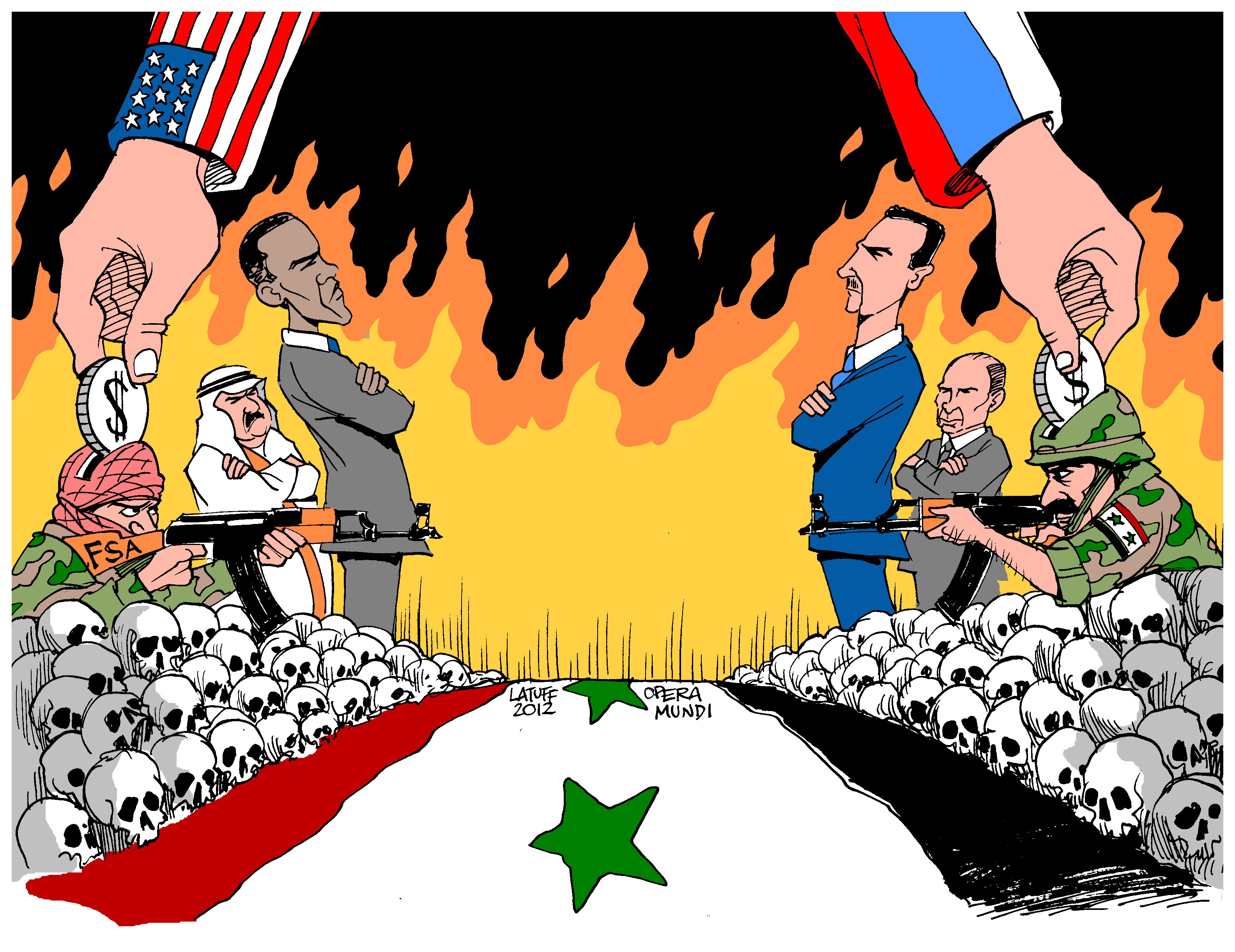US imperialism
Cuba: The legacy of the October 1962 Missile Crisis

By Ike Nahem
Solidarity statements: 'A vital victory for Chavez, Venezuela and the Bolivarian revolution'
 Brigadistas from the Australia-Venezuela Solidarity Network brigade get ready for the massive march in Caracas, October 4,
Brigadistas from the Australia-Venezuela Solidarity Network brigade get ready for the massive march in Caracas, October 4,Washington in Africa, 2012: Who will Obama ‘whack’ next?

Graphic from the Economist.
By Patrick Bond
[Address to the Muslim Youth Movement 40th Anniversary Conference, University of KwaZulu-Natal, Durban, September 30, 2012. Posted at Links International Journal of Socialist Renewal with the author's permission.]
At a time when popular revolutions are sweeping the globe, the United States should be strengthening, not weakening, basic rules of law and principles of justice enumerated in the Universal Declaration of Human Rights. But instead of making the world safer, America’s violation of international human rights abets our enemies and alienates our friends. – Former US president Jimmy Carter, 25 June 2012, New York Times
Colombia peace talks: Interview with FARC leader Timoleon Jimenez (Timochenko)

Timoleon Jimenez (Timochenko).

Cartoon by Carlos Latuff.
Click HERE for more by Tariq Ali. For more on Syria, click HERE.
By Tariq Ali
September 16, 2012 -- CounterPunch, via Green Left Weekly -- Angered by the non-stop, one-sided propaganda on CNN and BBC World, usually a prelude to NATO bombing campaigns (including the six-month onslaught on Libya, the casualties of which are still hidden from the public) or direct occupations, I was asked to explain my views on RTV [Russia Today].
I did so, denouncing the promotion of the Syrian National Council by Western media networks and pointing out that some of the armed-struggle opposition were perfectly capable of carrying out their own massacres and blaming them on the regime.
There were doubts at the time about who was responsible for the massacre in Houla in May. No longer. It’s now clear that the regime was responsible.
Report to the UN: Cuba and the world versus the US blockade, 2012

September 21, 2012 -- Links International Journal of Socialist Renewal -- For 21 consecutive times a resolution titled “The necessity of ending the financial and commercial embargo imposed by the United States against Cuba” will be voted on by the United Nations General Assembly at the end of October 2012.
"The blockade is a unilateral policy, rejected both inside the United States and by the international community. The United States must lift it, immediately and unconditionally. Once again, Cuba appreciates and requests the support of the international community in order to put an end to this unfair, illegal and inhuman policy”, states the report.
Cuba appreciates the denunciation of the blockade and asks for your solidarity. For more information visit http://www.cubavsbloqueo.cu. For comments and support you can join Twitter #cubavsbloqueo (https://twitter.com/cubavsbloque).
Sincere regards,
Abelardo Cueto Sosa, ambassador, Embassy of the Republic of Cuba in India
* * *
UN General Assembly's adoption of Cuba's resolution against the blockade between 1992 and 2011
Colombia: What prospects for the peace negotiations between FARC and government?

Revolutionary Armed Forces of Colombia (FARC) fighters walk in San Isidro, Colombia, May 30.
See also "Colombia: The end for guerrilla warfare?" For more coverage of Colombia, click HERE.
By Anthony Boynton, Bogota
September 12, 2012 – Links International Journal of Socialist Renewal -- The government of Colombia on September 4 announced that it had begun peace negotiations with the Fuerzas Armadas Revolucionarios de Colombia (FARC, Revolutionary Armed Forces of Colombia). The news was quickly confirmed by the FARC. Although FARC still leads thousands of armed fighters and has the financial resources to continue fighting, the decimation of its leadership combined with its political isolation has brought it to the point of no return. It has entered a new peace process with the government of Juan Manuel Santos with far less than it had to bargain with when it sat down at the negotiating table with the government of Andres Pastrana more than a decade ago.
Syria: Assad regime near end amid rising violence

[Click HERE for more analysis of the situation in Syria.]
By Tony Iltis
August 12, 2012 -- Green Left Weekly -- The 50-year rule of the Ba’ath Party in Syria looks to be effectively over. In the past month armed clashes have spread to the Syrian capital, Damascus, and the largest city, Aleppo. Armed opposition forces have taken control of several border points. On August 6, Prime Minister Riad Hijab defected to the opposition.
The regime of Bashar al-Assad — who inherited the presidency in 2000 from his father, Hafez al-Assad, who seized power in a 1970 military coup — no longer controls the country.
However, an end to the violence, which has claimed 20,000 lives since the uprising that broke out in March last year against Assad, looks far away. So, too, does the realisation of the uprising’s original aims: democratic rights and economic justice.
The regime has indicated it will cling to whatever power it can with counter-offensives in Damascus and Aleppo. Western demands that Assad face an international war crimes trial, and the nastier fate of Libyan dictator Muammar Gaddafi who was brutally murdered after his overthrow and capture by NATO-led forces, has given Assad no incentive to compromise.
Thomas Sankara: Revolution and the emancipation of women

"The revolution and women’s liberation go together.

